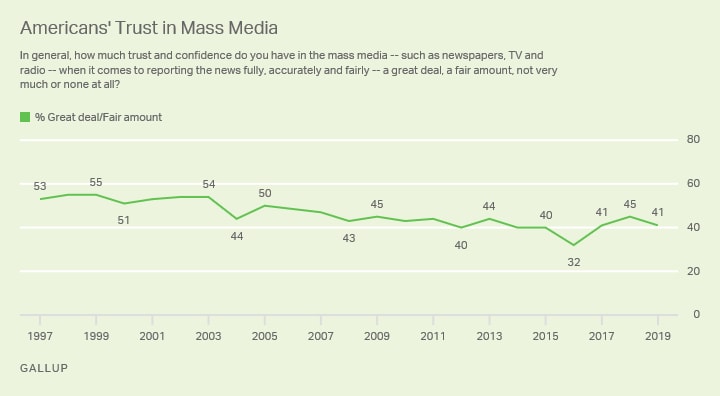
When you hear about The Fourth Estate, it usually means The Press.
- What do we mean by The Press, and how has it changed in modern times?
I conclude with a cautionary tale from early U.S. history.
Origin of The Fourth Estate
The term estates is a European word that refers to a great power in the political life of a nation. It goes back to the separation of powers during the Roman Republic. In modern usage, the term is first attributed to Lord Brougham in 1823 while he was addressing the British Parliament, or to Thomas Macaulay, who in an 1824 essay wrote:
“The gallery in which the reporters sit has become a fourth estate of the realm.”
The idea is that the Fourth Estate could act as a counter-power to the three powers of the State. This counter-power reported, verified, and questioned various matters of governance, both public and commercial, that the other powers exercised. It was non-partisan, neutral, unbiased, and untouchable by the other estates.
France
While the term was used in several countries, a good illustration of the four powers is France. In the Ancien Regime, meaning before the French Revolution in 1789, these four include:

- First Estate: Clergy — typically the officers of the church, Bishops and above. Along with the Nobility, this was considered the Estates-General.
- Second Estate: Nobility — sometimes including the monarchy, sometimes not, especially if believed he was appointed by divine right.
- Third Estate: Common people — the bourgeoisie. Townspeople, usually landowners and merchants: non-nobility.
“The press is in France a fourth power in the State: it attacks everything and no one attacks it.”
In Italy, though, quarto potere, the Fourth Estate referred to the unruly Mob.
England
The monarchy’s break with the Roman Catholic Church in the 16th century under Henry VIII created a unique situation. He was head not only of the monarchy (Nobility) but also the Church of England (Clergy).
With England’s evolving Parliamentary government, the country combined the Nobility and Clergy into one lordly estate with “Commoners” as the second estate. Hence, the two houses of Parliament include the House of Lords and the House of Commons.
United States

With the establishment of the U.S. Constitution in 1789 (the same year as the French Revolution) the United States had its own exclusive differences. It had neither a King nor a State Church, nor Nobility. Hence, it did not copy European models, for the most part. The four estates were:
- Executive Branch — headed by the President.
- Legislative Branch — with a British-style bicameral Congress: the Senate and the House of Representatives.
- Judicial Branch — with the Supreme Court and other Federal Courts.
- The Press — which is sometimes placed alongside the other three branches of government. This Fourth Estate refers to the watchdog role of the Press that is important to a functioning democracy.
Throughout the last century, the term “the Press” has evolved to include other media: radio, television, and the Internet. Over time, the business model that supported each of these media has evolved — from newsstand distribution or subscription, to broadcast or streaming supported by ratings and advertisers, to ubiquitous web connection mediated by algorithms to enhance page ranking.
Some of the models were more financially successful than others while the change from one-way communication to Web 2.0 conversations caused various levels of uneasiness.
So, how is the Press doing in its role?
Mistrust of The Fourth Estate
In today’s world, people’s trust in the Press is at an all-time low:
Only 41% of news consumers said they trust the media in 2019, according to the Gallup organization.

There has been a bifurcation of news media along partisan lines. The following chart suggests that it became most noticeable in 2015 during the Obama presidency and in early 2016 ahead of the polarized Presidential election of that year.

According to a survey by the global communications firm Edelman, via Axios:
- 56% of Americans agree with the statement that “Journalists and reporters are purposely trying to mislead people by saying things they know are false or gross exaggerations.”
- 58% think that “most news organizations are more concerned with supporting an ideology or political position than with informing the public.”
Gallup wrote in 2016:
“Before 2004, it was common for a majority of Americans to profess at least some trust in the mass media, but since then, less than half of Americans feel that way. Now, only about a third of the U.S. has any trust in the Fourth Estate, a stunning development for an institution designed to inform the public.”

The Challenge of The Fourth Estate
While the 1st Amendment to the Constitution made “free” the press from any government control or oversite. Our traditional newspaper, with its traditional profit model of subscriptions, has a shrinking readership. What other media can fulfill that role, taking responsibility as the people’s watchdog?
Do you still read your daily news on a “dead tree”?

Radio is threatened by satellite radio, which has no local ties, involvement, or responsibilities.
Television has always focused on entertainment, despite dressing it up as “news.” The shift to 24-hour “news networks” in 1980 meant you no longer get your news at 6 and 11 pm, but always. This means there is no time for analysis, only “seat of the pants” evaluation of situations.
The Internet is the answer to this problem, or is it?
Pros: It is frictionless; it’s available at all times on your mobile device. The business model for “news” on the Internet has been a challenge. How do you pay competitive rates for excellent content? It is now a “networked Fourth Estate” with many players involved. Getting your news from a blog is helpful; it’s highly targeted to your tastes, but few writers — excluding your friendly neighborhood historian, of course — have the time, interest, or experience to undertake serious research or investigative journalism.
Cons: The danger of such focused news feeds, of such self-curated news sources, is that they tend to create a “confirmation bias” bubble where only your views are catered to. It is not like the traditional Press with a limited number of major presses. The printer trade is becoming obsolete with electronic typesetting, as is the curation of news by traditionally trained journalists.
Social Media has gone from a way to connect with friends and family to a newsfeed that dominates one’s view. If “enragement is engagement,” then the more the algorithm feeds you what attracts your attention, whether positively or negatively, the longer you stay on the platform. If outrage can be institutionalized, it becomes less apparent. The longer you’re online, the more eyeballs see the advertising that funds the platform.
“If you’re not paying for the product, then you are the product.” – Daniel Hovermann
In this case, the Internet now has a profitable business model; attention is the new coin of the economy.
“We’re the product. Our attention is the product being sold to advertisers.” – Justin Rosenstein, former engineer Facebook and Google, co-founder of Asana
Fake News in a post-fact world. When every person gets their own personalized, customized newsfeed, they believe they have their own truth. There is no objective truth; there is only the truth that one believes. If there are enough other people in your opinion bubble that agree with you, then it supports that belief. This might explain the astounding surprise of the 2016 presidential election victory: a victory so surprising to some that they could not accept it.

But not you, gentle reader. You check the facts, you consider the source, you do the additional search engine check.
A Cautionary Tale from our Nation’s Beginning
In 1798 during John Adams's presidency, he signed the Alien and Sedition Act making it a crime to publicly criticize the U.S. Government, President, or Federal officials. Part of this was motivated by Adam’s Federalist party’s fear that resident aliens would support France, with whom we were engaged in an undeclared naval war from 1798 to 1800. Such French residents were they to become citizens would vote for the opposing party in the next election in 1800. But mostly it was to silence dissent from the Democratic-Republican (Republican) party — that of his political rival Thomas Jefferson — which the Federalists considered subversive. I’ve written previously about how contentious that election was.
First, it raised the number of years of residency required to apply for citizenship from 5 to 14 years. The subsequent Alien Friends Act allowed Adams to deport any alien for almost any reason.

It stayed in effect for only three years. The 1918 version of this Act was also repealed — declared unconstitutional — harkening back to the original Sedition Act of 1798. The 1798 Act generated such widespread criticism that it became a key issue of the 1800 election and contributed to the Federalists’ defeat. The party did not survive past 1812.
The error that the Federalist party made was this: they presumed that any criticism against the Federalist party was criticism against “the Government,” not the party.
If the Fourth Estate is to be the watchdog of democracy,
“Who watches the watchers?” – Satire VI, Juvenal, 1st century A.D.
Bill Petro, your friendly neighborhood historian
If you enjoyed this article, please consider leaving a comment. Subscribe to have future articles delivered to your email.
About the Creator
Bill Petro
Writer, historian, consultant, trainer
https://billpetro.com/bio






Comments
There are no comments for this story
Be the first to respond and start the conversation.